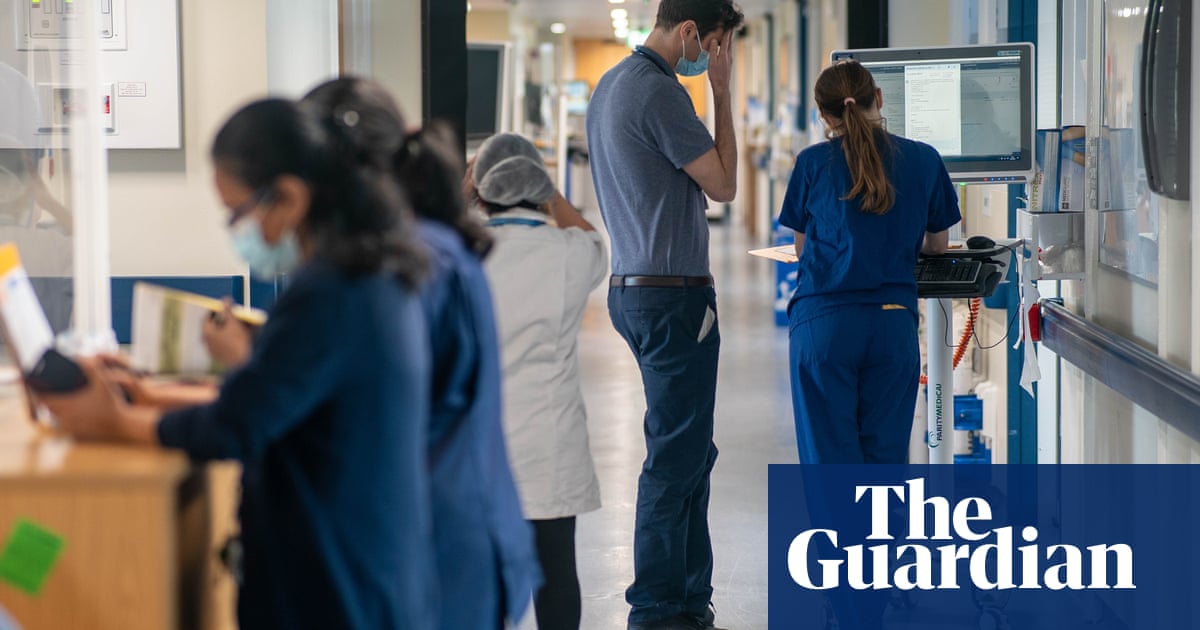Associated doctors must be renowned to prevent them from being wrong with doctors | NHS

NHS associated doctors will be renowned to prevent patients from confusing them with doctors after an examination found that their title caused generalized confusion.
Thousands of associated doctors who work in hospitals and general practitioners of general practitioners across the United Kingdom take medical history, examine patients and diagnose diseases but are not doctors.
However, Professor Gillian Leng, whose journal commanded by the government examines if they have a risk for patient safety, concluded that they should receive a new name, so that the patients they treat are not misleading by thinking that they have seen a doctor, according to sources with knowledge of his reflection.
Doctors who fear the term have created generalized confusion among the public and the risks undergoing confidence in the medical profession will consider it as a major victory.
Wes Street, the Secretary of Health, should accept Leng's recommendation and cause change, which could lead to the fame of “medical assistants” or “doctors' assistants”. It will also specify in its final report, later due this month, that those who play these roles must specify to the patients that they are assistants, and not fulfillment doctors.
The associated doctors were involved in several deaths of high -level patients. Earlier this year, a coroner noted that in February 2024, an associate doctor (PA) at the East Surrey hospital had badly diagnosed Pamela, 77, as having nose bleeding when she had an obstruction and hernia of the small intestine which required an emergency operation. She returned to the hospital two days later but died shortly after.
In her report on the prevention of future deaths, the Coroner, Karen Henderson, warned that the term “associated doctor” was “deceptive for the public” and that there was a “lack of public understanding of the role”.
The steps have caused an alarm for doctors for years. They have aroused a number of legal challenges and calls, the British Medical Association and several medical medical colleges, for their recruitment and their deployment through the health service to be interrupted while their implications are assessed.
The parents of Emily Chesterton, 30, who died in 2022 after an AD, did not show that she had a blood clot, recently started legal action at the High Court of London against the General Medical Council, which regulates doctors.
There are around 3,500 steps and 100 anesthesia partners – their equivalents in anesthetics – working in the NHS in England. But the NHS plan in England to triple the number of steps at 10,000 by mid-20130 now seems in doubt. Ministers should publish a long-term workforce of the NHS updated in summer.
The evidence collected by Leng since she started her examination in November confirmed the concern shared by many medical organizations that patients often find it difficult to distinguish an associated doctor, who has carried out two years of third cycle training, from a fully trained doctor with a medical diploma.
In May, Leng said that she had seen evidence showing that “patients [are] likely to misunderstand the step as a doctor ”. In addition, the discussion groups organized by the association of patients had discovered that “patients were not aware of what an AP” was.
After promoting the newsletter
A third research study revealed that patients “poorly conceived are doctors”, while a fourth quoted by Leng stressed how confused the public on work and the limits of their roles. “Patients could not identify what an AP was,” he said.
When the street named Leng to undertake the exam, he said that, even if many APs offered good care, there were “legitimate concerns about transparency for patients, the scope of practice and the substitute of doctors”.
A source from the Ministry of Health and Social Care said: “It is clear that there is a legitimate problem of patients who do not know who they are seen, which is their fundamental right. It is likely that the examination makes recommendations to solve this problem, including the modification of PAS securities.”
“The Secretary of State asked Professor Gillian Leng to produce an independent examination in the AP and AAs who will provide certainty to patients and NHS staff.
“We will consider his results in full once it is finished.”




